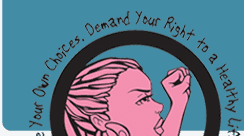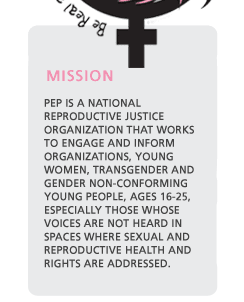Q. What does LGBTQ stand for?
A. Lesbian Gay Bisexual Transgender Queer. Sometimes you might see additional initials like LGBTQQTI, which stand for Lesbian, Gay, Bisexual, Transgender, Queer, Questioning, Two-Spirited, and Intersex.
Q. What's the difference between lesbian, bisexual, and queer?
A. Lesbian refers to women who have a sexual preference for women. Bisexual refers to men or women who are sexually attracted to both men and women. Queer is an identity that has emerged and gained momentum in the 1990's. It was previously a derogatory term used against gay and lesbian folks, but some people have reclaimed the word. Queer is often used as an umbrella term to encompass lots of non-straight identities. People use "queer" to mean lots of different things, but often it is an all-encompassing term that reflects the belief that gender and sexuality are fluid constructs. Many people choose to use "queer" because they feel it reflects their understanding of gender and sexuality as complicated and dynamic-beyond the binaries of man/woman and straight/gay.
Q. What does it mean to be Trans?
A. Transgender people do not identify with the sex to which they were assigned at birth that was based on their genitals. Often they identify as the opposite gender or do not identify with male or female (seeing gender as a spectrum, not a binary). Transsexual people are those who choose to medically transition into another gender (through hormone therapy or surgery or both). Transvestite is an obsolete term that many folks in the trans community find to be derogatory. Broadly speaking, anyone whose identity, appearance, or behavior falls outside of conventional gender norms may describe themselves as transgender. However, not everyone whose appearance or behavior is gender-atypical will identify as a transgender person. If you are unsure how to address someone (i.e. which pronouns to use), because you are unsure of their gender, it is generally appropriate to politely ask about their pronoun preference (he, she, they), but it's not ok to grill a person about their gender identity.
Transgender (TG)- A range of behaviors, expressions and identifications which challenge the pervasive bipolar gender system in a given culture. Transgender was originally a word coined to describe individuals who desired to change their gender expression without making hormonal or surgical changes to their bodies. While retaining its use as an identity descriptor for some, it has also evolved into an umbrella term including many categories of people who transcend traditional gender roles. This can include (but is not limited to) people who identify as transsexuals, cross-dressers, masculine-identified females, feminine-identified males, twospirit people, MtFs, FtMs, bearded women, transmen, transwomen, and other differentlygendered people. Transgender people come from every race, class, sexual orientation, and ability.
Q. Are transpeople gay?
A. "Trans" refers to a persons' gender identity. "Gay" refers to a persons' sexual orientation. Gender and sexuality are two different categories. Transpeople can be gay, straight, lesbian, bisexual or queer, just like non-trans men and women. There's no one answer. For example, some transmen choose to date women, some choose to date men, others date both, or they date transpeople, etc. Gender is different than sexuality and not always directly linked.
Q. What is intersex and how do I know if I'm intersex?
A. Intersex applies to a person whose sex chromosomes, genitalia, and/or secondary sex characteristics are not standard to a male or female. 1 in 2,000 people are born with ambiguous genitalia, while an estimated 1 in 200 have sex chromosomes which are not exclusively male or female. Many intersex infants are "corrected" starting when they're babies. They're subjected to sometimes multiple surgeries and hormone therapies. Recently, activists have been working to de-stigmatize intersex conditions and liberate individuals who have struggled with their identity because of it. They seeks to stop unnecessary surgeries performed on infants/children before they can give consent. The word 'hermaphrodite' has also been used to refer to intersex people, but because of its negative historic connotations, most intersex people find it derogatory.
Q. If I am engaging in oral sex with women how do I practice safe sex?
A. Dental dams are square pieces of latex that can help prevent the transmission of STDs during oral sex (between anybody!). Just like with condoms, it is important to use dental dams correctly. Before using it you should examine the dam to make sure there are no holes or tears. It works as a barrier between bodily fluids, so you put the dental dam over your partners genitals during oral sex to prevent your tongue from coming into contact with any secretions. Lubricant can be helpful to increase stimulation and make it more pleasurable, but make sure you're using water-based lubricant because oil-based lubes can decrease the dam's effectiveness. Be sure not to flip the dam. If your partner's fluids are on one side, make sure your tongue is on the other. And remember, dams are only good for one use, so make sure you don't reuse them!
Although some health sources don't recommend it, in place of a dental dam, other barriers such as saran wrap can help reduce the risk of transmitting an infection during oral sex.
Q. Women do more than just have oral sex with each other, what other precautions can they take to be safe during sexual activity?
A. First of all, taking proper care of sex toys can help cut down on the risk of transmitting infections or disease. When using dildos or vibrators always make sure to cover them with a condom and wash them as directed in between uses. A good tip for washing is to wash with antiseptic soap and water! If your toys are silicone, you boil them to sterilize them, which is much more effective then washing, or you can place them on the top rack of your dish washer.
You should wear gloves (latex or polyurethane) for any contact with your partner's vagina or anus. Make sure you throw away all gloves, condoms or dental dams after one use.
Q. Can HIV/AIDS be transmitted between women?
A. Women who have sex with women are not at high risk for transmitting HIV but it is possible for transmission to occur. Although oral sex between women is a low risk activity for transmitting HIV, the risk can be increased if the partner giving has cuts in her mouth or the partner receiving is having her period. Using a protective latex barrier such as a dental dam can help lower the risk. Sharing sex toys that haven't been cleaned (i.e. that have vaginal fluid or blood on them) can also increase the risk.
Q. How can gay and bisexual men engage in safe sex?
A. All sexually active people need to be aware of the health risks involved in having sex. Gay and bisexual men need to get tested for STDs including HIV/AIDS and always use protection (condoms, dental dams, and gloves).
Q. If I'm a lesbian, I don't have to worry about unintended pregnancy, right?
A. If you only engage in female-female sex then no. However, unintended pregnancy rates are on the rise among lesbian youth. Even if you identify as a lesbian, it is important to use protection if you ever decide to engage in intercourse with a male, even if it is only one time and even if another female partner is involved in the act as well.
Q. Are folks born LGBTQ?
A. Some scientists are trying to find the 'gay' gene. But the jury is still out-nobody knows if folks are born LGBTQ or not. Does it really matter? Some folks in the LGBTQ community are concerned that "finding the gay gene" is motivated by a desire to use genetic testing to wipe out LGBTQ folks. Either way, whether people are "born gay" or not, LGBTQ folks deserve civil rights and respect just like straight people.
Q. If I'm LGBTQ do I need to come out?
A. Really, it's up to every person to decide if they want to 'come out' or not, and to whom or when to do it. For some people, it can be dangerous to their families or their employers. For some people, it can be a liberating experience that allows them to express who they are to the people that they care about and maybe the world in general. Many people who come out find other LGBTQ folks more easily and support each other in dealing with the homophobia and heterosexism that they have to deal with. Some people come out just online, some just at home with their families, some just at school with their friends. It's up to you to decide what's right in your life. National Coming Out Day is October 11th.
Q. What is homophobia? What is heterosexism?
A. Homophobia is a fear of or discrimination against LGBTQ people. Homophobia is structural in that there are public policies that discriminate against LGBTQ folks and societal in that there still exists an attitude that being an LGBTQ person is wrong. Homophobia can also be internalized by people suppressing their own feelings about their sexuality. Heterosexism is the attitude that being heterosexual is normal and anything else is against the norm and/or the belief that heterosexual people are superior to everyone else. For example, when a woman says she is going on a date, many people will ask, "What's his name?" or "Is he cute?" assuming it is a heterosexual date. This assumption reflects the societal belief that heterosexuality is the norm and everything else is strange.
Q. How do I know if I'm LGBTQ?
A. Determining your sexuality and/or gender can be very confusing and it's common to feel pressure to define yourself to your peers. Some people know that they're LGBTQ for their whole lives, and other folks don't embrace their LGBTQness until they're in mid-life. There's no rush, but for some folks it's important to find the support that they need. There are lots of online communities, non-profit organizations, and youth groups that will be supportive. It is important to remember that whether you're having sex with someone of the same or opposite sex, you should practice safe sex and get tested.
Q. How long have LGBTQ people been around?
A. As long as everyone else. Throughout history, different societies have accepted and embraced LGBTQ people as natural while others have cultivated homophobic and heterosexist attitudes. In the United States, the start of the Gay and Lesbian movement, a civil rights movement, is often marked by Stonewall on June 28, 1969 when police raided a LGBTQ bar in New York City and the LGBTQ community acted out against the police violence.
Resources
Intersex info www.isna.org
LGBTQ Youth www.advocatesforyouth.org
Coming Out http://www.hrc.org/issues/coming_out.asp
| 





